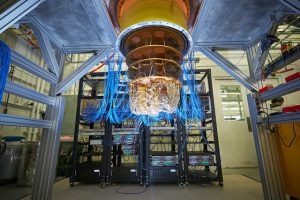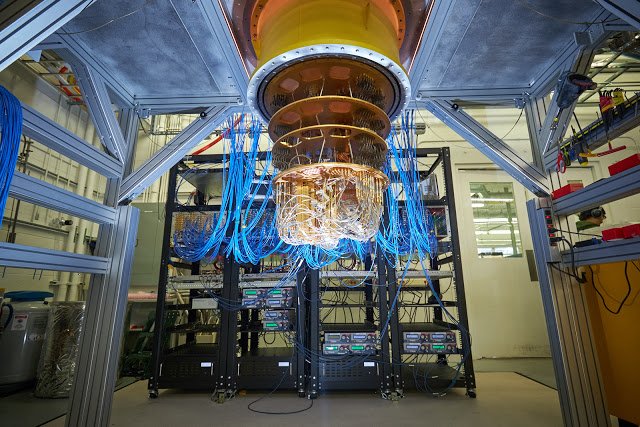
In a sign that both quantum computing and quantum AI is approaching and that they will have practical uses, the Google AI Quantum team reports that it performed the largest chemical simulation performed on a quantum computer to date.
According to the blog post, “In our experiment, we used a noise-robust variational quantum eigensolver (VQE) to directly simulate a chemical mechanism via a quantum algorithm. Though the calculation focused on the Hartree-Fock approximation of a real chemical system, it was twice as large as previous chemistry calculations on a quantum computer, and contained ten times as many quantum gate operations.”
The team, which published their paper, “Hartree-Fock on a Superconducting Qubit Quantum Computer”, in Science, added that they validated that algorithms that are being developed for currently available quantum computers can achieve the precision required for experimental predictions. This could offer pathways toward realistic simulations of quantum chemical systems.
The experiment may show that quantum computers can open up a “new frontier in chemistry,” according to the team.

They write: “Accurate computational prediction of chemical processes from the quantum mechanical laws that govern them is a tool that can unlock new frontiers in chemistry, improving a wide variety of industries. Unfortunately, the exact solution of quantum chemical equations for all but the smallest systems remains out of reach for modern classical computers, due to the exponential scaling in the number and statistics of quantum variables. However, by using a quantum computer, which by its very nature takes advantage of unique quantum mechanical properties to handle calculations intractable to its classical counterpart, simulations of complex chemical processes can be achieved.”
They add that today’s quantum computers are powerful enough for computational advantage at some tasks, the debate is still on whether QCs can help accelerate our current quantum chemistry simulation techniques.
This is a step toward ending that debate, but more work is needed.
“One exciting prospect is that it is known how to modify the quantum circuits used in this experiment in a simple way such that they are no longer efficiently simulable, which would determine new directions for improved quantum algorithms and applications,” the team said in the post. “We hope that the results from this experiment can be used to explore this regime by the broader research community.”
The experiment was run on the Sycamore processor that was recently used to demonstrate quantum supremacy.
The code has been released, which uses OpenFermion, our open source repository for quantum computations of chemistry.
If you want to learn more, we’ve compiled the most comprehensive list of the top quantum computing companies available!















